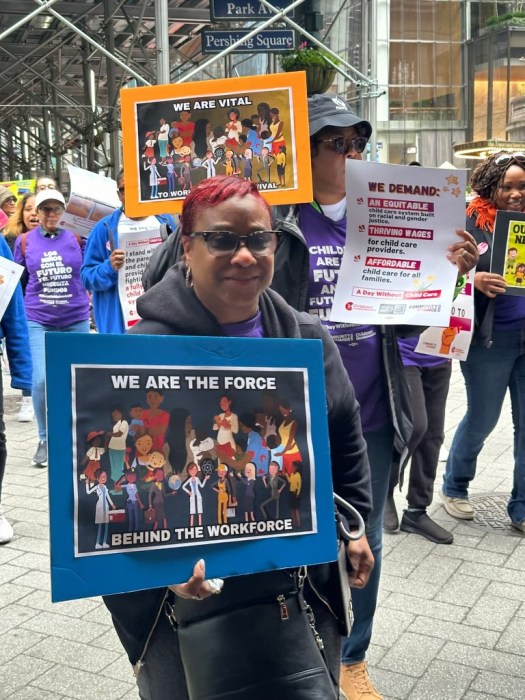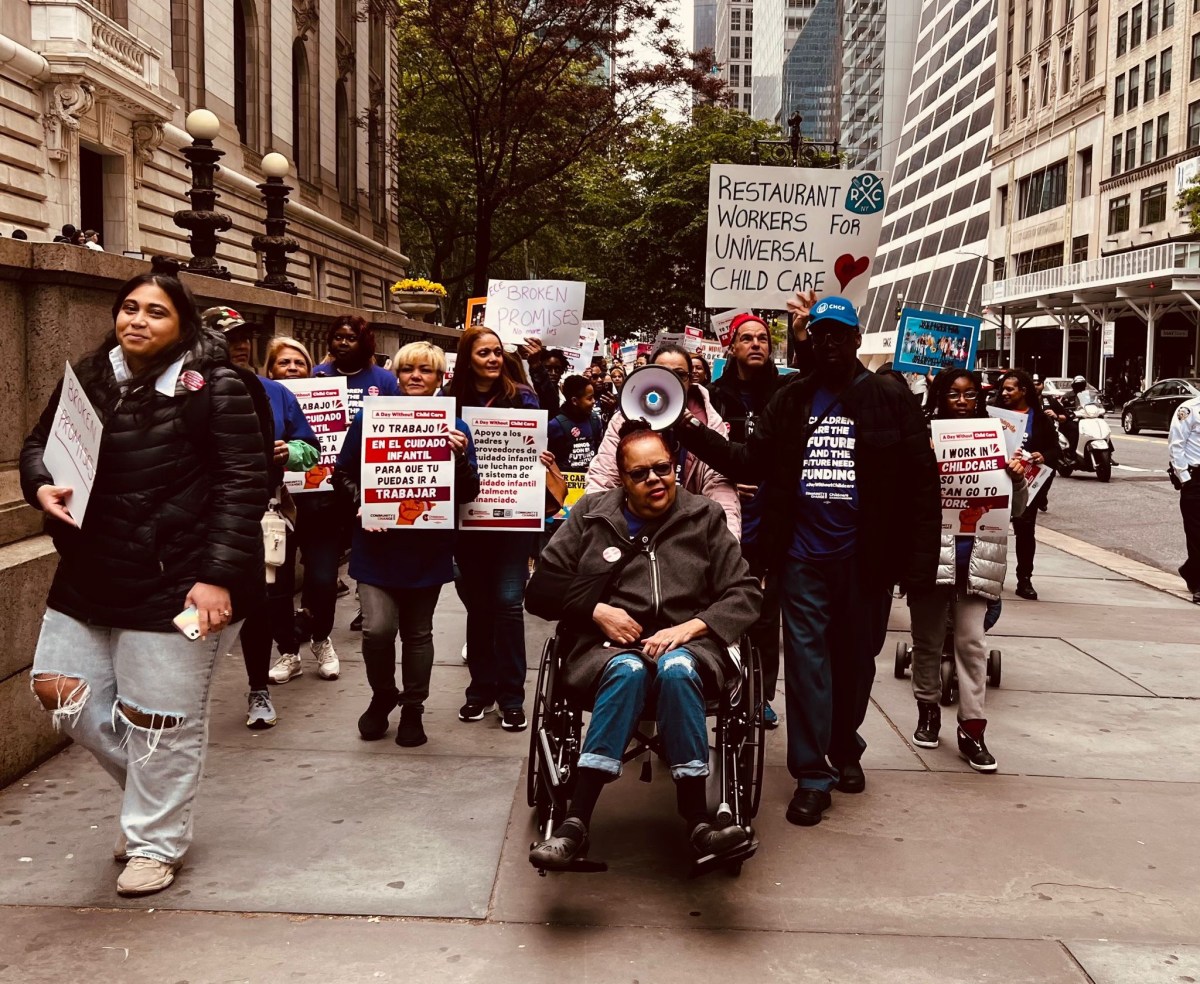Nearly 100 advocates for government-funded child care programs marched to Gov. Kathy Hochul’s Manhattan office on Monday to shed light on the lack of funding for such services in NYC.
Child care providers, parents and supporters walked from Bryant Park to the governor’s Midtown office at 633 Third Avenue as part of the third-annual nationwide Day Without Child Care event. At this year’s march in NYC, themed Imagine a Day Without Child Care, participants marched in opposition to the governor’s rejection of $220 million in state funds for child care.
Shanita Bowen, chief operating officer of ECE on the Move, a NYC-based organization that advocates for early childhood educators and families, said it was important for her and others to participate in the march to “immediately” address the state’s omission of funding for the child care industry.
“When the New York state budget dropped, and we saw that there were no more new dollars put toward the workforce, we knew we couldn’t influence the budget at that point, but we had to respond,” Bowen said. “In the State of the State address, the governor promised for the second time — because she did it last year, too — that child care was a priority.”
When amNewYork Metro reached out to the governor’s office for comment, a spokesperson provided several initiatives the governor included in this year’s budget— including $1.8 billion in funding to continue a “historic $7 billion four-year plan” to expand access to child care and improve affordability for families.
The plan also included enhanced rates to “high quality” providers; providers serving homeless families; and providers that serve non-traditional work hours — though it is not yet known how much funding will support this initiative.
Bowen said she and her team at ECE on the Move needed to march today because costs are rising, and it is getting harder and harder for providers to run a business.
“The current market rate system is too low,” Bowen said. “We are being paid maximum in NYC $65 per day, per child. It might sound like a lot, but it’s not because we’re running businesses, we have to pay for things.”
To highlight the issue of rising costs, Bowen brought up the new minimum wage.
“The minimum wage just went up. An assistant is now $16 an hour,” she said. “We can’t afford it but we have to pay it. That means that we don’t get to have our pay. We can’t pay her all those hours, as all educators should get more, and survive.”

Uncertainty of NYC funding
The march was organized just a month after Mayor Eric Adams restored millions in support for education, but left a lot of uncertainty about the status of funding for universal Pre-K and 3-K in the city — a topic that has been a point of contention this year between the mayor, elected officials and child care advocates.
“We don’t need anybody cutting anything for education, and definitely in our area early childhood education,” Bowen said.
She added that additional funding was never given to child care businesses that transitioned from independent providers to joining the Department of Education’s provider network.
Providers over the years made the leap to DOE thinking they would get more students and tap into the DOE’s wealth of resources. But that’s not always the case, according to Bowen.
“If you’re an independent provider and you’re trying to make your way — or trying to make your way — and then you join the DOE, which comes with a lot of curriculum and professional development — shouldn’t you be paid a little more than independent providers? That never happened.”
Organizing child-care marches nationwide
Community Change Action, an organization that helps support low-income families, organized more than 80 marches nationwide Monday, including in part the one in Midtown, to address a variety of issues pertaining to child care funding across the country.
“Especially after the expiration of pandemic funding, the child care industry was propped up for about two years,” said Samantha Hart, senior communications manager at Community Change Action. “It had been floundering before, but COVID put a spotlight on the cracks in the system.”
Hart added that $1 billion has been granted federally but still falls short of what she said is needed to support child care nationwide.
“We asked for $16 billion, which, by our calculation, was the bare minimum of what would be needed to keep the industry afloat,” she said.
Dorien Warren, co-president of Community Action Change, said he has found a “renewed purpose in organizing for a better child-care system” as he navigates the issue as a parent.
“I’m a parent who relies on child care to be able to work and provide for my family,” he said. “Alongside my wife, I have organized the providers, parents, and children at my child’s care center to walk out and participate in a mini march around the building. As parents, we need to stand with early educators because our system is on the brink of collapse. Providers and families’ livelihoods are hanging in the balance. We need a fully-funded, 21st-century child care system that allows everyone to thrive.”




































